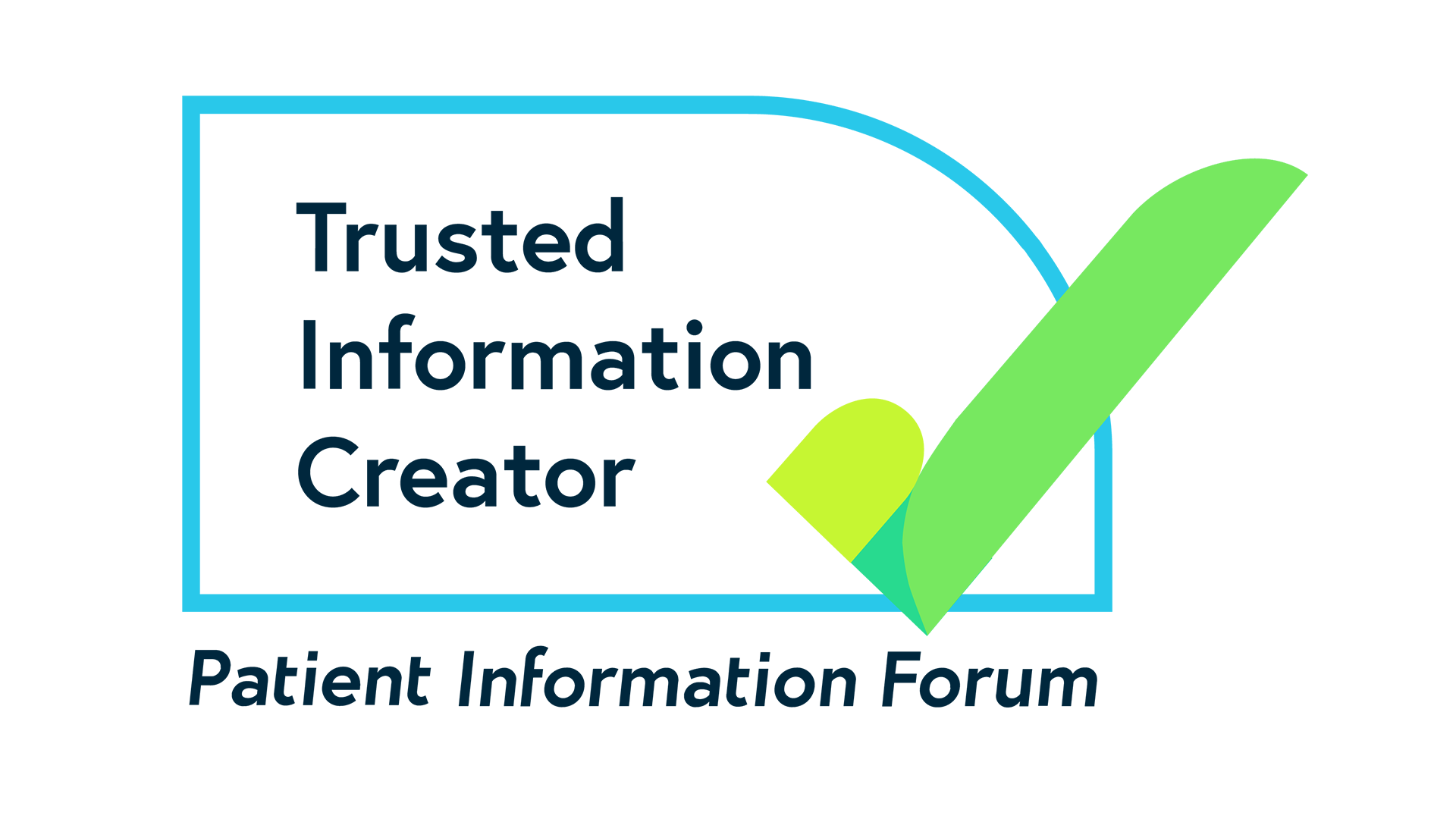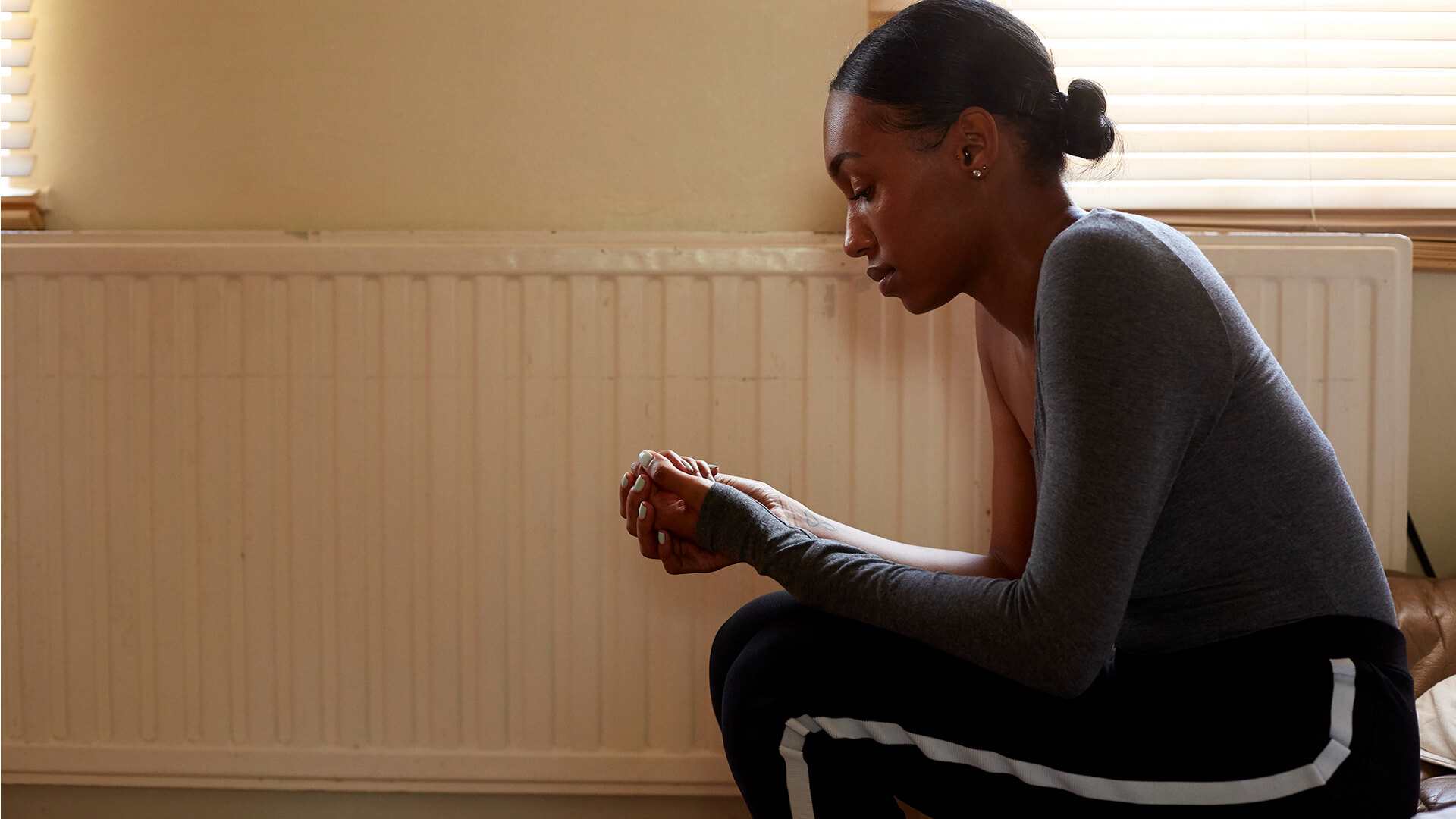Being in hospital for your mental health can feel really scary – especially if you’ve been sectioned and didn’t get a choice. You might not know what’s going to happen, how long you’ll be there, or what your rights are. You might also be unsure how it’ll feel to be there as you – with your background, identity or personal experiences – and how you’ll be treated.
At the same time, it might feel like a bit of a relief to be somewhere you can get support and start to feel safer. Everyone’s experience is different and it’s okay to have mixed feelings or feel unsure.
This guide is here to answer your questions. Whether you’re thinking about going to hospital, you’ve just arrived, you’ve been on the ward for a while, or you’re getting ready to leave, we’re here to help you feel informed and find your own way through it.
Before you go to hospital
Being ‘sectioned’ means you have to go into hospital to get urgent support and treatment for your mental health. It’s sometimes called ‘being detained’ or 'admitted under section'.
This happens when mental health professionals, like doctors, decide it’s the safest option for you.
If you’re sectioned, the law says you have to go into hospital, even if you don’t want to or don’t agree. This law is called the Mental Health Act 1983. It has lots of different sections, which is why it’s called ‘being sectioned’.
You’ll only be sectioned if you’re very unwell and doctors think your safety or the safety of others is at risk. It’s scary, but it’s important to remember that the decision has been made for your safety and wellbeing.
Each of the sections under the Mental Health Act has different rules about how long you can be kept in hospital and what happens next. You can find out more information on this in our guide to what each section means.
Before you can be sectioned, a team of professionals needs to assess whether going to hospital is the right option for you. This is called a Mental Health Act assessment. This could be at your home, in hospital, in a public place, or at a police station.
The assessment is usually carried out by:
- an Approved Mental Health Professional (AMHP) – this is usually a specially trained social worker, but could also be a nurse, psychologist or occupational therapist
- two doctors – at least one must be specially approved under the Mental Health Act, and one should know you (for example, your GP or psychiatrist)
The team will talk with you about:
- how you’re feeling and coping
- whether you're a risk to yourself or others
- your lifestyle, support, and living situation
- whether you’ve been using drugs or alcohol
- any recent changes in your behaviour or routines
They’ll use this to decide if you need to be in hospital for your safety or to get the right treatment. They’ll always try and look for alternative options to being sectioned where possible.
If the team decides you do need to go to hospital, they should explain:
- which section you’re being detained under
- why they made the decision
- what happens next
- your rights
You can ask questions and share your views at any point during the assessment.
If professionals decide you need to be detained under the Mental Health Act, you don’t have a legal right to refuse. They can take you to hospital even if you don’t want to go, and may use reasonable force or ask the police to help if needed.
If you’re at home and won’t let them in, they can apply for a legal warrant to enter, even by force, if they believe you're not safe.
This can feel scary and like your rights are being taken away. But it’s happening because professionals believe you're too unwell to make safe decisions and that you or others might be at risk.
Things you can do
You might not be able to stop the assessment, but you do still have a voice. Here are some things that can help:
- Ask for a trusted friend or family member to be with you during the assessment.
- Be honest about how you're feeling and what support you already have.
- Talk about alternatives, like working with a crisis team or going to hospital voluntarily.
- Ask questions to find out why the assessment is happening and what their concerns are.
- Share your side of things – explain how you're coping, what helps you manage, and who supports you.
During the assessment, professionals will want to listen to what you have to say and consider all options before deciding to detain you.
If you and your care team agree that being in hospital could help, and you're happy to go, you can be admitted as a voluntary or informal patient. This means you haven’t been sectioned and you’re choosing to go into hospital to get support.
If you're under 18, your parent or carer might need to agree with the professionals that hospital is the right place for you.
As an informal patient:
- you can choose when you feel ready to leave
- you don’t have to have treatment you don’t want
- you’ll be expected to take part in your treatment plan, and talk to staff about how you're doing
If you want to leave but the professionals think you’re too unwell or unsafe, they could section you to keep you in hospital.
If you want to go into hospital and professionals agree it’s the right thing, but they think you don’t have capacity to give informed consent, you might still need to be sectioned under the Mental Health Act. This is so the professionals have a legal framework to make sure you’re supported and kept safe.
Every hospital is different, and so is every person’s experience. At times, it might feel helpful, supportive and reassuring. Other times it might feel scary, lonely, or even a bit boring. Here are some things to think about.
Things that might help:
- You’ll have access to talking therapies, medication and other support that could help you feel better.
- Trained staff are around if you’re struggling or feeling unsafe.
- It might give you a break from things at home or school that feel stressful.
- Hospital can offer structure, routine and people to talk to.
Things that might feel hard:
- You might have to ask staff before you leave the ward, even if you’re there by choice – this is because some wards are locked to make sure everyone on the ward is safe.
- You won’t be able to see friends and family whenever you like.
- You might not enjoy the activities available.
- You might miss your home, routines, or belongings.
If you’re thinking about going into hospital voluntarily, it’s okay to have mixed feelings. You can talk to your care team about what support is available, what the ward is like, and what kind of treatment you could have.
While you’re in hospital
You won’t be taken to hospital until a bed is available and the hospital agrees to admit you. If there’s no bed available, you may be taken to your local A&E department until one becomes free. Sometimes there might only be a bed available in a hospital further away from home, but professionals will try to keep you as close to home as possible.
When you do go into hospital, you’ll be given a bed in the inpatient mental health ward. To keep you safe, this could be a locked ward, meaning you won’t be able to come and go freely. On most psychiatric wards there will be a mixture of voluntary and sectioned patients, so even if you’re there by choice, you may need permission to leave. Some locked wards have secure outdoor spaces like a garden or courtyard.
If you’re under 18, you should be sent to a mental health ward for under-18s – called a CAMHS ward in England, or Tier 4 services in Wales. When you arrive, someone should show you around and help you settle in. Normally, you’ll be on a ward with other young people, but on rare occasions, you might have to stay on an adult ward instead. This could happen if:
- you need to go into hospital quickly but there are no beds on the young people’s ward
- being on an adult ward is better for your care – like if you're nearly 18 and don’t want to move wards soon after, or if you have a baby
Once you're there, you’ll meet your responsible clinician – the person in charge of your care. This is usually a psychiatrist, but it could be another trained mental health professional.
If you're going into hospital, it’s a good idea to pack a few things that help you feel comfortable. There are some rules about what you can and can’t bring for safety reasons, but hospital staff will let you know if you’ve brought anything that’s not okay.
If it’s a last-minute emergency and you can’t pack, don’t worry – someone can bring your things in later.
Here are some things to think about taking:
- comfy clothes
- pyjamas
- toiletries (like toothbrush, shampoo, etc.)
- socks and underwear
- a notebook or journal (not wire bound)
- colouring book or puzzle book
- playing cards or something to pass the time
- wireless headphones (if allowed)
- sports clothes (in case there's a chance to get active)
- a sleep mask or ear plugs
- your favourite cuddly toy
- flip-flops or slippers
- photos or something comforting from home
- a blanket or pillow
- schoolwork or textbooks if you want them
Avoid bringing anything really valuable or that you’d be upset about losing or breaking.
After you're assessed, the staff will work with you to make a treatment plan – sometimes called a care plan. This will be based on what you need and what will help you feel better.
Your care plan might include things like:
- one-to-one therapy
- group therapy
- medication
- creative or group activities
- occupational therapy (like help with school or routines)
- family therapy
It’s likely that lots of different professionals will be involved in your care. Nurses will support you day-to-day, and you’ll also meet with doctors, therapists and other mental health professionals.
Yes – you should always be involved in decisions about your care and treatment. Your thoughts, experiences and opinions matter, and professionals should take them seriously, whatever your age or situation.
Whether you’re able to make decisions yourself depends on a few things, like how old you are and whether professionals think you have the understanding and capacity to make safe choices at that time.
- If you’re under 16, professionals will assess whether you have enough understanding to make decisions on your own (this is sometimes called ‘Gillick competence’). If they don’t think you can make decisions on your own, they’ll usually work with your parents or carers to decide what’s best.
- If you’re 16 or older, you have the right to make decisions about your treatment. Professionals should assume you’re able to do this, unless an assessment shows you can’t. They should also support you to make decisions – for example by making sure you have all the information you need. If professionals do an assessment and they think you’re not able to make informed and safe decisions at the moment, they might make some decisions themselves, or together with your parents or carers if you’re under 18. This is outlined in the Mental Capacity Act. The decisions they make will always be in your best interests and they’ll still aim to take your wishes into account and explain decisions as much as possible.
If you're staying in hospital, you'll have a care plan (sometimes called a treatment plan). This sets out what support and treatment you're going to get – like talking therapies, medication, or support from nurses.
The people planning your care should think about:
- what treatments you feel have helped or not helped before
- your age and physical health
- your religion, culture or beliefs
- your gender identity or sexuality
- what might happen if you don’t get treatment
If something doesn’t make sense, it’s always okay to ask. You deserve to understand what’s happening.
Sometimes, if you’ve been sectioned, treatment can go ahead even if you don’t agree. But you still have the right to know what’s happening and to be treated with respect.
Yes. You don’t have to figure everything out on your own. You can talk things through with someone you trust, like a parent, carer, family member or friend. You can ask for them to be involved in meetings, join phone calls, or visit so you can get support when decisions are being made.
You can also ask for more official help with understanding your care and treatment, and with speaking up if you’re not sure about something.
There are two main roles that can support you with this:
Independent Mental Health Advocate (IMHA)
An IMHA is someone who:
- helps you understand your rights
- explains your care and treatment
- speaks up for you if you want them to
You have a legal right to an IMHA if you've been sectioned. Staff must tell you how to get one, and you can ask for one at any time.
Nearest relative
Under the MHA, you have the right to be assigned a Nearest Relative. This is someone who can look out for you while you’re in hospital. This might be a family member like your parent or older sibling. But it might not be the same person as your next of kin, because the Mental Health Act has a set list of who counts as your Nearest Relative.
Your Nearest Relative can help you communicate what you want and need, and make sure your rights are respected. They can:
- get information about your care
- ask for you to be assessed or discharged
- speak up about what you want or need
If you’re not happy with who’s been chosen as your Nearest Relative, or don’t want them involved, you might be able to apply to the County Court to ask for someone else to take on that role. This is a type of court that deals with decisions about your rights under the Mental Health Act. If you apply, the court will look at your situation and decide if it’s best to choose someone else as your Nearest Relative.
You don’t have to do this on your own. A social worker or your IMHA can help you apply and explain how it works. You can also get support from other people you trust, like a parent, carer or friend.
Yes – you’re allowed to have visitors, and seeing people you trust can be an important part of feeling supported.
Each hospital ward has its own rules, so it’s a good idea for your family or friends to check with staff before visiting. Some wards have fixed visiting times, while others are more flexible. There may also be rules about what visitors can bring in.
If visits feel difficult, you can ask for things to make them easier – like meeting in a quieter space or doing an activity together. Some wards have a garden or courtyard you can use.
If the staff feel it’s safe, you may be able to go on short trips with visitors, which might make visits feel more relaxed.
If seeing people feels like too much right now, that’s okay too. You can change your mind at any time. If you don’t want to see anyone at all, you don’t have to. It’s your choice.
If you're in hospital voluntarily, you can usually come and go freely, but some wards are locked, and you might need to ask staff to let you out. You can also talk to them about going home for a short time or spending time off the ward.
If you've been sectioned, you can only leave hospital if your responsible clinician agrees it's safe. This is called section 17 leave. You might get permission to go for a walk, visit home, go on a day trip, or go somewhere overnight – either on your own or with someone else. The staff will talk with you about what's possible and what kind of leave would work best for you.
You should usually be able to use your phone, social media and the internet while you're in hospital. But there might be some rules about when and where you can use them. For example, some wards don’t allow phones in certain areas.
If you're not allowed to use your own phone, the hospital should give you other ways to keep in touch, like a ward phone or a shared computer.
Sometimes, your care team might decide you can’t use your phone for a short time. This could happen if they think it’s negatively impacting your mental health. If they take your phone away, they should explain why, keep it safe, and give it back as soon as possible.
It’s totally normal to wonder about this. You might be thinking about your background, culture, gender, sexuality, disability, or something else that’s important to who you are, and whether you’ll feel understood or find people you can relate to.
There are usually young people from all sorts of backgrounds in hospital. You might meet someone who really gets what you’re going through, or you might not. Some people find that helpful, others can feel a bit out of place at first.
Either way, you deserve to feel safe, respected and supported while you’re there. If you’re feeling unsure or worried about anything, like who you’ll be sharing a space with, what helps you feel comfortable, or any religious or cultural needs, talk to a member of staff. They’re there to help and can make any adjustments to support you.
You should still get education and support while you’re in hospital, in a way that works for you. Staff will usually get in touch with your school or college to understand what kind of work or support you need, so you can keep learning during your stay. And lots of mental health units have their own school attached to them.
If you’re feeling well enough, you might still be able to sit any exams you’ve got coming up. If that feels too much, you or your parent or carer can talk to your school or college about delaying your exams or taking more time out if you need to.
When I went into hospital, it was my first time being away from home. I like my own routine, and my own way of doing things and did not want anybody to change it. But I was wrong. The more I realised that there were other ways of doing things, the more I started to see new possibilities for freedom and creativity.
Leaving hospital
If you’re in hospital voluntarily, you can usually decide when you want to leave. But if your care team is worried about your safety, they might decide to section you to keep you safe.
If you’ve been sectioned under the Mental Health Act, you can’t leave hospital early just because you want to – your care team will decide when you're well enough to leave. They should keep discussing this with you and involving you in this decision.
If you don’t agree with this, you might be able to apply for a Mental Health Tribunal. This is a legal hearing where an independent panel decides whether you still need to be sectioned.
The tribunal is a group of three people who don’t work for the hospital. They include:
- a judge, who leads the hearing
- a psychiatrist (not from your hospital)
- a professional with mental health experience
They will:
- look at how you’re doing
- speak to you and your care team
- read reports about your mental health
They’ll then decide if you need to stay in hospital under your section or if you can leave.
Tribunals usually happen in the hospital, but they are independent and not part of your care team.
You can only apply for a tribunal under some sections of the Mental Health Act, for example if you're on a section 2 or section 3. If you’re under a short-term section (like section 136) or a court-ordered section, you probably won’t be able to apply.
If you’re not sure which section you're on or whether you can apply, ask someone on your care team. You can also get help from a mental health solicitor or ask your Nearest Relative to apply for you.
Leaving hospital – or being ‘discharged’ – can feel like a big step. It’s exciting but also scary. Before you leave, your care team will want to make sure you’re well enough to leave and you’ve got the right support in place for when you're back at home.
Sometimes, the end of your section doesn’t mean you’ll leave hospital straight away. If you still need support but don’t need to be sectioned, you might stay on the ward as a voluntary patient instead. This means you're there by choice and can usually leave when you feel ready – but staff will still want to make sure you're safe and supported.
There should be a discharge meeting where you and your family talk through what support you’ll have. You’ll be given:
- a discharge summary explaining how long you were in hospital and what treatment you had
- a care plan that says what support you’ll get and what to do if things get tough again
- the name and contact details of the main professional who’ll support you after you leave, like a care coordinator at Child and Adolescent Mental Health Services (CAMHS) or Adult Mental Health Services (AMHS)
- a crisis plan – this says what to do and who to contact if you’re in crisis
- info about going back to school or college, if that’s something you want to do
- appointment dates or a clear idea of what will happen in the first few weeks after leaving hospital
If you have a right to free support after leaving hospital, someone should tell you about this. It’s called section 117 aftercare, and it means you should get help to stop your mental health from getting worse. You can keep this support until your care team agrees you no longer need it. As a voluntary patient, you don’t have the right to section 117 aftercare.
Coming home can feel like a relief – but it can also take time to adjust. Your care team should still check in with you, either at home, at appointments, or through CAMHS or your GP. But there are also things you can do for yourself to help you settle back in:
- Talk to someone you trust if things feel hard – it could be a family member, a friend or someone from your care team.
- Spend time doing things you enjoy, even small things like watching your favourite show, baking, going for a walk, or playing sport.
- Take your time – you don’t have to feel okay straight away.
- Keep a list of people or services you can contact if you need support, like your care coordinator or a helpline.

After six months sectioned, we began talking about discharge. Fortunately, I was able to go to a well-resourced and successful private treatment centre for three months away from home. I was reluctant to go at first, but I spoke to someone who had been to the clinic and their story gave me the hope and slight push to go there.
Your rights and making complaints
While in hospital, everyone has the right to be protected, treated fairly, and get the right support. You have rights if you’re a voluntary patient or if you’ve been sectioned.
The Equality Act is a law that says everyone must be treated fairly – no matter who they are. Hospitals have to follow this law. That means they can’t treat you unfairly because of things like:
- your disability or mental health condition
- your age, race or religion
- your gender or sexuality
- if you’re pregnant or have had a baby
- if you’re transgender
If you need extra help or support, the hospital should make what's called reasonable adjustments. These could include things like:
- getting a sign language interpreter
- making the ward wheelchair accessible
- providing a space to pray
- offering halal or other culturally appropriate food
If something doesn’t feel fair or right, you can talk to staff you trust or ask to speak to an advocate. You have the right to speak up, and there are people who can help.
Even in hospital, you should be able to:
- wash and get dressed in private
- see visitors privately
- send and receive messages without staff reading them
If staff are worried about your safety or someone else’s, they might check on you more or watch you more closely. But they should still treat you with respect and explain why.
Some wards use cameras in bedrooms. If you’re not sure or don’t want to be filmed, speak to your care team or an advocate.
Things you tell your care team should stay private, unless:
- you say it's okay to share
- it helps you get better care
- staff are seriously worried about your safety or someone else’s
If staff do need to share something, they should try to tell you first.
If you’re sectioned, you have the right to a special advocate called an Independent Mental Health Advocate (IMHA).
If you’re a voluntary patient, in England you don’t have the right to an IMHA but in Wales you do.
An advocate helps you understand your rights and speak up about your care. They don’t work for the hospital – they’re on your side.
If you're sectioned under section 2, 3, 4 or 37, you have a legal right to a Nearest Relative. This is usually a parent, carer or guardian. But it could also be:
- a brother or sister over 18
- a grandparent, aunt, uncle or another close family member
The law decides who your Nearest Relative is. You don’t get to choose them, which can feel unfair, but it’s usually someone close to you.
Your Nearest Relative has certain rights. They can:
- in some cases, say no to you being sectioned under section 3
- ask for your section to end if you’re on section 2 or 3
- get information about your treatment and care
Doctors should always tell your Nearest Relative if you’re being sectioned.
If you don’t want your Nearest Relative to get information about your care or treatment, tell your care team. They’ll talk it through with you and explain your options.
Your care team must explain:
- why you’re in hospital
- what your rights are
- when and how you can be given treatment
- how to challenge your section
- how to get support from an advocate (if you’re entitled to this)
They should give you this information in a way that works for you – like large print, easy read, Braille or in another language.
You might be searched
Staff may check you or your things if they think you have something unsafe (like sharp objects or alcohol). They should:
- explain what’s happening and why
- try to agree it with you first
If you're sectioned, staff can search you without permission if there's a serious risk. If you're an informal patient, they can't search you unless you agree – but they might ask you to leave if you say no.
You might be restrained
Restraint means staff use physical force to stop you if:
- you're harming yourself or someone else
- there's a serious risk of harm
They should only restrain you if they’ve tried other ways first. If it happens, staff must:
- use the least force possible
- stop as soon as it’s safe
- treat you with respect
- write down what happened and tell you why
They should never use restraint to punish you or make you do something.
If you feel your rights are being ignored or you’re being treated unfairly, you have every right to speak up. Start by talking to a staff member about how you feel. If you don’t feel you can talk to them yourself, you can speak to your advocate or Nearest Relative for advice.
If you feel like the issue continues or isn’t resolved after speaking to someone, you can make an official complaint. Here’s how:
- Write your complaint: You can complain by post, email, or phone. You can also use a BSL interpreter if needed. Make sure to include your name, contact info, and details about the service you’re complaining about.
- Send your complaint: Send your complaint to the NHS or to your local CAMHS.
- Wait for a response: The NHS should reply within three working days and keep you updated during their investigation. You’ll get a written response once the investigation is complete.
If you need support to do this, you have the right to an independent advocate to help.
Get help now
-
Samaritans
Whatever you're going through, you can contact the Samaritans for support. N.B. This is a listening service and does not offer advice or intervention.
- Opening times:
- 24/7
-
Childline
If you’re under 19 you can confidentially call, chat online or email about any problem big or small.
Sign up for a free Childline locker (real name or email address not needed) to use their free 1-2-1 counsellor chat and email support service.
Can provide a BSL interpreter if you are deaf or hearing-impaired.
Hosts online message boards where you can share your experiences, have fun and get support from other young people in similar situations.
- Opening times:
- 24/7
-
Citizens Advice
Provides information and advice on issues such as discrimination because of race and/or religion, benefits, work, universal credit, debt, housing and immigration.
Webchat service available.
- Opening times:
- 9am - 5pm, Monday - Friday
-
Muslim Youth Helpline
Provides faith and culturally sensitive support for young Muslims.
Online chat service available during opening hours.
- Opening times:
- 4pm - 10pm, 365 days a year
-
Black Minds Matter
Connects Black individuals and families with free professional mental health services across the UK.
-
Tellmi
Formerly known as MeeToo. A free app for teenagers (11+) providing resources and a fully-moderated community where you can share your problems, get support and help other people too.
Can be downloaded from Google Play or App Store.

This page was reviewed in August 2025.
It was co-created with young people with lived experience of inpatient care.
We will next review the page in 2028.
YoungMinds is a proud member of PIF TICK – the UK's quality mark for trusted health information.
Whether you love the page or think something is missing, we appreciate your feedback. It all helps us to support more young people with their mental health.
Please be aware that this form isn’t a mental health support service. If you are in crisis right now and want to talk to someone urgently, find out who to contact on our urgent help page.
At YoungMinds we take your privacy seriously. If you’d like to read more about how we keep the information we collect safe, take a look at our privacy policy.






